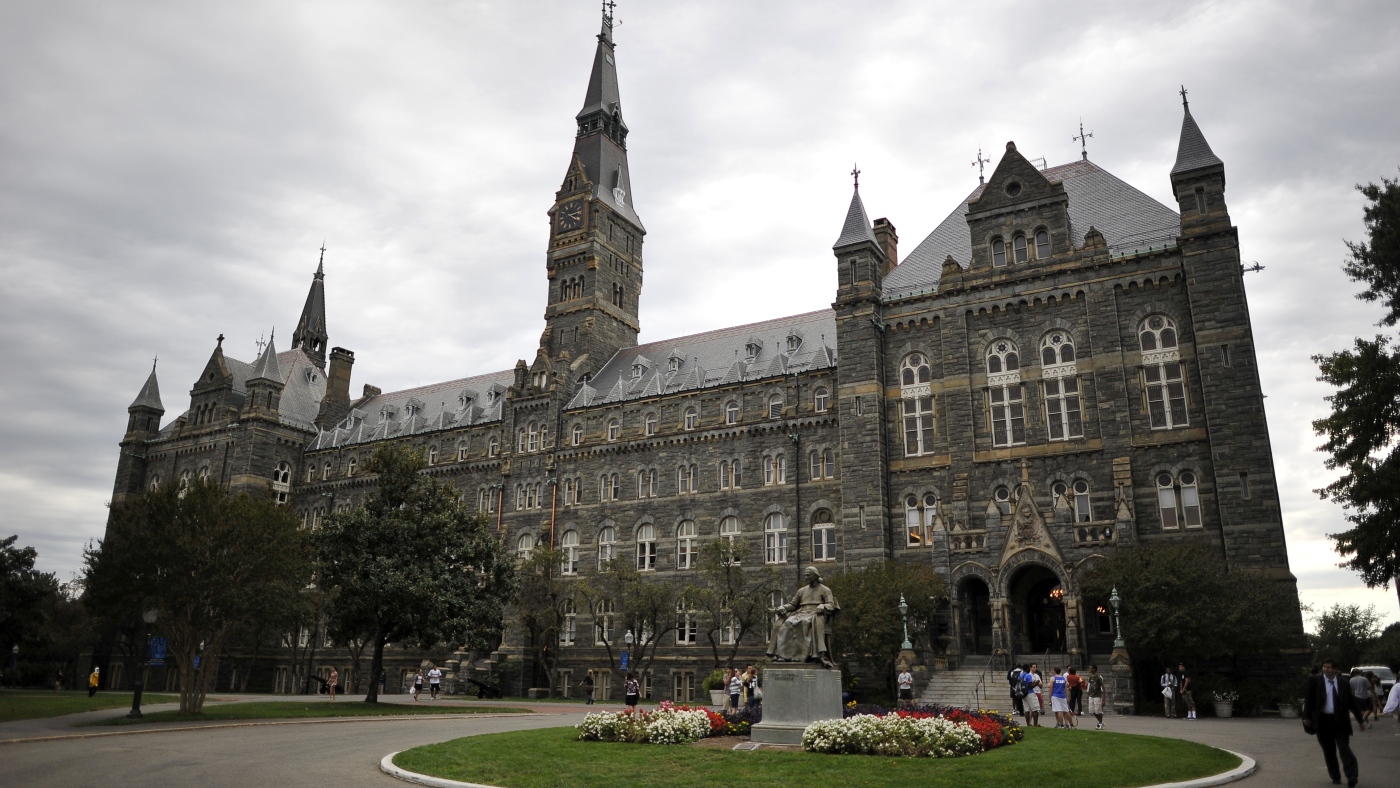Georgetown Scholar’s Deportation Halted Amid Controversy
The detention of a Georgetown University professor has sparked a significant legal battle, with a federal judge temporarily halting his deportation. This case highlights the ongoing tensions over immigration policies in the United States.
U.S. District Judge Patricia Tolliver Giles, based in Alexandria, Virginia, has issued an order preventing the deportation of Badar Khan Suri, an Indian national and postdoctoral scholar at Georgetown University. The judge’s decision ensures that Suri will remain in the United States until further court orders, though it does not allow for his immediate release to his Virginia home, where his family resides. Suri’s legal team continues to work on securing his release.
The Trump administration’s move to detain Suri is part of a broader crackdown on scholars who have expressed support for Palestinian rights or criticized Israeli policies. Suri, similar to Columbia University graduate student Mahmoud Khalil, faces accusations from the Department of Homeland Security (DHS) of disseminating Hamas propaganda.
In a statement on X, Tricia McLaughlin, assistant secretary of DHS, claimed, “Suri was a foreign exchange student at Georgetown University actively spreading Hamas propaganda and promoting antisemitism on social media. Suri has close connections to a known or suspected terrorist, who is a senior advisor to Hamas.”
Suri’s defense team, including attorneys from the Virginia ACLU, refutes these claims, arguing that the government’s actions are retaliatory due to his and his wife’s pro-Palestinian stance and their connections to Gaza.
Sophia Gregg, a senior immigrants’ rights attorney with the ACLU of Virginia, stated, “Ripping someone from their home and family, stripping them of their immigration status, and detaining them solely based on political viewpoint is a clear attempt by President Trump to silence dissent.” She emphasized the unconstitutionality of such actions in a statement on Suri’s case.
Who is Badar Khan Suri?
Badar Khan Suri, at the time of his arrest, was involved in teaching at Georgetown’s Alwaleed Bin Talal Center for Muslim-Christian Understanding. He holds a J-1 visa, which allows participation in educational and cultural exchange programs, as per the U.S. Citizenship and Immigration Services. He earned his Ph.D. in Peace & Conflict Studies from Jamia Millia Islamia in 2020.
Georgetown’s Alwaleed Center has condemned the Trump administration’s actions, stating, “[Suri] has committed no crime. Like Mahmoud Khalil before him, he was arrested in the context of a campaign by the Trump Administration to destroy higher education in the United States and punish their political opponents.”
Suri’s wife, Mapheze Saleh, a U.S. citizen of Palestinian descent, is connected to Ahmed Yousef, a former adviser to Hamas. However, Yousef has publicly stated that Suri is not involved in political activism, and academic peers, such as Professor Nader Hashemi, corroborate this, emphasizing Suri’s focus on teaching.
What happened?
Suri’s ordeal began on March 17 when he was apprehended by masked federal agents from DHS shortly after a Ramadan celebration. They informed him that his visa had been revoked, though his legal representatives assert there were no prior visa issues.
Despite not being charged with any crime, Suri was quickly taken into custody and transferred between immigration centers, eventually ending up in Louisiana. The lack of transparency and speed of actions have raised concerns, as noted by Eden B. Heilman, legal director of the ACLU of Virginia.
What is the government saying?
Assistant Secretary McLaughlin indicated that Secretary of State Marco Rubio’s decision on March 15 designated Suri’s activities as grounds for deportation under INA section 237(a)(4)(C)(i). This is similar to tactics used against Mahmoud Khalil, employing a “rarely used” federal provision, as documented by Suri’s legal team.
This approach, according to Baher Azmy from the Center for Constitutional Rights, mirrors historical precedents like the Red Scare, aiming to suppress dissenting voices critical of U.S. foreign policy. Currently, Suri’s lawyers are striving to have him relocated closer to his family and legal team in Virginia.





